第102章 Chapter XVII The Reconstruction Period(7)
"In his intercourse with his faculty he was courteous, kind, and often rather playful in manner. We all thought he deferred entirely too much to the expression of opinion on the part of the faculty, when we would have preferred that he should simply indicate his own views or desire. One characteristic of General Lee I noted then and have often recalled: I never saw him take an ungraceful posture. No matter how long or fatiguing a faculty meeting might be, he always preserved an attitude in which dignity, decorum, and grace were united. He was a very well built man, with rounded body and limbs, and seemed without the slightest affectation of effort to sit or stand or walk just as a gentleman should. He was never in a hurry, and all his gestures were easy and significant. He was always an agreeable companion.
There was a good deal of bonhomie and pleasantry in his conversation.
He was not exactly witty, nor was he very humorous, though he gave a light turn to table-talk and enjoyed exceedingly any pleasantry or fun, even. He often made a quaint or slightly caustic remark, but he took care that it should not be too trenchant. On reading his letters one discovers this playful spirit in many of them, as, for instance, in his letter to the spiritualist who asked his opinion of Von Moltke and the French war. He wrote in reply a most courteous letter in which he said that 'the question was one about which military critics would differ, that his own judgement about such matters was poor at best, and that inasmuch as they had the power to consult (through their mediums) Caesar, Alexander, Napoleon, Wellington, and all of the other great captains who had ever lived, he could not think of obtruding his opinion in such company.' General Lee did not talk politics, but he felt very deeply the condition of the country, and expressed to me several times in strong terms his disapproval of the course of the dominant party."
There is a story told of my father which points to his playful manner here alluded to. At a certain faculty meeting they were joking Mr. Harris, who so long and so ably filled the chair of Latin, about his walking up the aisle of the Presbyterian church with the stem of his pipe protruding from his pocket. Mr. Harris took out the offending stem and began cutting it shorter. My father, who had been enjoying the incident, said:
"No, Mr. Harris, don't do that; next time leave it at home."
Sometimes he deemed it advisable to be a little stern. One of the young professors went off for a few days without asking the president's permission. On his return the General met him very stiffly, saying:
"Mr. ---, I congratulate you on your return to your friends and duties.
I was not aware of your absence until I heard it by chance."
Mr. --- told this on himself, and added that it was the last time he ever went away without a formal leave of absence. His particularity in little things has often been commented on. He applied it to all his affairs. Dr. Kirkpatrick, Professor of Moral Philosophy, came into the president's office and asked for a certain paper. My father told him where it could be found. After a while, turning to the doctor he said:
"Did you find the paper?"
"Yes, General," replied the Doctor.
"Did you return it to the place where you found it?"
"Yes, General."
At another time he asked Professor Harris to look at a catalogue on the table. The Professor took up a new one, wrapped ready for the mail, and was about to tear the cover off, when my father, hastily handing him one already opened, said:
"Take this, if you please."
My mother used to say that he could go, in the dar, and lay his hand on any article of his clothing, or upon any particular paper, after he had once arranged them, provided they had not been disturbed. One of his "quaint or slightly caustic remarks," alluded to by Colonel Johnston, I recall as told to me. He met a lady friend down in the town, who bitterly complained that she could get nothing to eat in Lexington suitable for Lent--no fish, no oysters, etc.
"Mrs. ---," the General replied, "I would not trouble myself so much about special dishes; I suppose if we try to abstain from SPECIAL SINS that is all that will be expected of us."